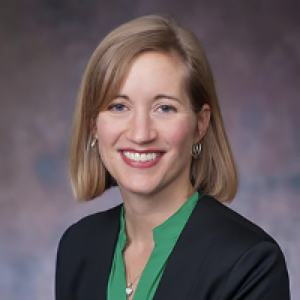
Kimmy Gustafson
A career as a forensic auditor offers an exciting pathway for individuals interested in combining financial expertise with investigative skills. Forensic auditors play a vital role in examining financial records to uncover potential fraud, embezzlement, or financial discrepancies. They work across various sectors, including corporate entities, government agencies, and legal firms, providing invaluable services to businesses and organizations needing specialized financial scrutiny. In today’s increasingly complex financial environments, the demand for forensic auditors continues to grow, making it a promising field for those seeking a challenging and rewarding career.
While often confused with forensic accountants, forensic auditors focus more specifically on auditing processes and providing detailed analyses of financial statements. Unlike forensic accountants, who may be involved in a broader range of financial investigations and analysis, forensic auditors concentrate on uncovering specific fraudulent activities through meticulous examination of financial documents. Their work often involves tracing the flow of money, identifying discrepancies, and preparing evidence for legal cases.
Entering the forensic auditing field typically requires a solid foundation in accounting or finance, followed by specialized training in forensic techniques. An aspiring forensic auditor should obtain a bachelor’s degree in accounting, finance, or a related field. Certifications such as the Certified Fraud Examiner (CFE) or Certified Forensic Auditor (CFA) further enhance an individual’s qualifications and job prospects. Practical experience gained through internships or entry-level positions in auditing or accounting also proves invaluable.
Keep reading to learn more about the education requirements for this field, how to obtain the necessary certification, what salary professionals in this field can expect, and advice for aspiring students from Casey Evans, associate dean for undergraduate programs and student services accounting at the Kogod School of Business at American University.

Casey Evans is the associate dean for undergraduate programs and student services accounting at the Kogod School of Business at American University. She holds certifications as both a Certified Public Accountant and a Certified Fraud Examiner, bringing a wealth of experience in forensic accounting. Her expertise spans various areas, including fraud investigations, handling enforcement actions by the Securities and Exchange Commission and Department of Justice, addressing financial reporting and disclosure challenges, resolving technical accounting issues, and conducting internal control evaluations.
Before her academic career, Evans served as senior director of forensic and litigation consulting at FTI Consulting. In this role, she managed intricate forensic accounting and financial fraud investigations alongside SEC, DOJ, and corporate audit committee inquiries. Notably, starting in early 2009, she was instrumental in the FTI team investigating Bernard Madoff and his firm, Bernard L. Madoff Investment Securities, which was implicated in one of the most significant investor frauds in U.S. history.
ForensicsColleges.com: What is something you wish the public understood about forensic auditors?
Evans: Our work as forensic auditors is an important part of the checks and balances on the financial system. Companies and their operations have to ensure their internal controls are operating effectively and that there aren’t any gaps or loopholes.
We are working behind the scenes to ensure that the infrastructure for companies we all rely on and invest in is created without any material financial misstatement. We want the public to remain confident in those numbers. Ultimately, this job is a public service many folks don’t know or think about.
ForensicsColleges.com: What advice would you give to aspiring forensic auditing students?
Evans: Starting your career in accounting is important. Work towards becoming a CPA. While you can go straight into forensic work at some firms, I think it’s still beneficial to have a strong accounting foundation. Often, early work experience looks like working as an auditor. This will give you a good understanding of how companies operate and how their systems work.
Once you have a good sense of how it’s supposed to work, it makes it easier to your spot when it’s not working right. An accounting foundation may mean a longer journey to get to the forensic accounting space, but it will make you more recruitable and higher value employee when you do enter forensic auditing.
The career outlook for forensic auditors is highly promising, driven by the increasing complexity of financial regulations and the global rise in financial crimes. According to the Bureau of Labor Statistics (BLS 2024), the employment of accountants and auditors, including those specializing in forensics, is projected to grow by 6 percent from 2023 to 2033. This growth is slightly higher than the average for all occupations (4 percent), reflecting the consistent demand for skilled professionals capable of conducting in-depth financial investigations.
Demand for professionals in this field is driven by both the public and private sectors, with government agencies, law firms, and corporations seeking skilled forensic auditors to identify and prevent financial fraud. Additionally, technological advancements have led to a surge in digital financial transactions, creating new avenues for fraud that require specialized expertise to detect.
Salaries for forensic auditors can vary widely. The amount of experience someone has, where they live, and who employs them are just a few factors that can add to a salary. Because this is such a niche field, very little data is available as of December 2024.
Glassdoor.com estimates that forensic auditors earn between $79,000 to $123,000 annually, averaging $98,000. ZipRecruiter.com, on the other hand, reports that forensic auditors earn between $30,500 and $117,500, with an average of $72,633. Lastly, Indeed.com lists the average salary for forensic auditors to be $88,271 annually.
The BLS reports salaries for accountants and auditors but doesn’t differentiate by specialty. Here are the salary percentiles for accountants and auditors (BLS May 2023):
The BLS found that the top-paying industries for auditors and accountants nationwide were:
Top employers for accountants and auditors in the US are:
As previously mentioned, the salaries for auditors and accountants can vary based on where you live. Here are the top-paying states in this field:
The top employing states for accountants and auditors was also the most populated parts fo the county:
The top ten highest-paying metropolitan areas for accountants and auditors are:
The top-employing metropolitan areas for accountants and auditors tended to fall in the country’s large cities:
Step 1: Finish High School: Begin by obtaining a high school diploma or equivalent. Focus on mathematics, economics, and computer science courses to build a foundational understanding of key concepts.
Step 2: Earn a Bachelor’s Degree (Four Years): Pursue a bachelor’s degree in accounting, finance, or a related field. Programs that offer specific auditing, forensic accounting, and fraud examination courses are highly beneficial.
For example, Embry-Riddle Aeronautical University offers a bachelor’s of science degree in forensic accounting and fraud examination. This program is designed to equip students with the skills needed to detect and prevent financial fraud. The curriculum includes a combination of accounting, law, and investigative techniques. Students are trained to analyze financial documents, compile evidence, and prepare for litigation processes. The program also covers the legal aspects of fraud and provides an in-depth understanding of business ethics.
Another option is the online bachelor’s of science in accounting with a focus on forensic accounting and fraud examination at Southern New Hampshire University (SNHU). Students in this program will gain a comprehensive grasp of accounting principles and expertise in identifying and examining financial fraud. The curriculum features courses in auditing, ethics, and forensic accounting methods, combining core accounting education with skills in fraud detection and prevention. Graduates can critically analyze financial statements, spot fraud indicators, and work with law enforcement in financial investigations.
Step 3: Gain Relevant Experience (Timeline Varies): Seek entry-level positions in accounting or auditing. Work opportunities within accounting firms, government agencies, or financial institutions can provide you with essential hands-on experience.
Step 4: Obtain Certification (Timeline Varies): Earning a Certified Fraud Examiner (CFE) credential from the Association of Certified Fraud Examiners (ACFE) can enhance your qualifications. Consider also pursuing the Certified Public Accountant (CPA) license, a widely recognized credential that can significantly boost your career prospects.
In forensic auditing, job duties can vary significantly depending on the organization’s size, the industry, and the specific focus of the auditing assignment. Forensic auditors may work on various tasks, from examining financial records for discrepancies to uncovering fraud and preparing detailed reports that can be used in legal proceedings. The diversity of responsibilities ensures that forensic auditors must be adaptable and skilled in various areas. Below is a list of typical tasks and responsibilities that a forensic auditor might undertake in their professional role:
Earning a certification as a forensic auditor is voluntary but can significantly enhance your qualifications and career prospects. One of the most common certifications in this field is the Certified Fraud Examiner (CFE), offered by the Association of Certified Fraud Examiners (ACFE). The CFE credential demonstrates expertise in detecting, preventing, and deterring fraud. In addition to the CFE, other relevant certifications for forensic auditors include the Certified Public Accountant (CPA) or Chartered Professional Accountant (CPA) designation.
Becoming a Certified Fraud Examiner (CFE) requires a combination of education, experience, and dedication to the field of fraud examination. Here are the steps you need to follow to earn this prestigious credential:
Meet Eligibility Requirements: Eligibility is determined by a point system. There are three key criteria: education, professional experience, and ACFE membership. Candidates are awarded points for each category, with education levels and professional experience playing significant roles in calculating eligibility. For instance, holding an advanced degree or significant years of experience in fraud-related activities earns more points, thus compensating if any other area is lacking. ACFE membership also contributes to the total points. This comprehensive approach allows for a balanced assessment of a candidate’s readiness, accommodating various paths of gaining fraud examination expertise while ensuring that standards for the CFE designation are met.
Become a Member of the ACFE: Before applying for the CFE Exam, you need to join the ACFE. Membership is essential as it provides access to relevant resources, professional development, and a network of fraud professionals.
Prepare for the CFE Exam: The CFE Exam covers four major areas: Financial Transactions and Fraud Schemes, Law, Investigation, and Fraud Prevention and Deterrence. The ACFE offers a variety of resources, including review courses, study guides, and practice exams to help candidates prepare effectively.
Pass the CFE Exam: Once you feel prepared, you can take the CFE Exam, which consists of multiple sections that cover different aspects of fraud examination. A passing score on each section is required to earn the certification.
Adhere to the ACFE Code of Professional Ethics: As a certified professional, you must uphold the highest ethical standards. CFEs must follow the ACFE Code of Ethics to ensure integrity and credibility in the field.
Continue Professional Education: To maintain the CFE credential, you must complete ongoing professional education. CFEs must earn Continuing Professional Education (CPE) credits each year to stay updated on industry trends and best practices.

Kimmy Gustafson
Kimmy Gustafson’s expertise and passion for investigative storytelling extends to the world of forensics, where she brings a wealth of knowledge and captivating narratives to readers seeking insights into this intriguing world. She has interviewed experts on little-known topics, such as how climate crimes are investigated and prosecuted, and has written for ForensicsColleges.com since 2019.
Kimmy has been a freelance writer for more than a decade, writing hundreds of articles on a wide variety of topics such as startups, nonprofits, healthcare, kiteboarding, the outdoors, and higher education. She is passionate about seeing the world and has traveled to over 27 countries. She holds a bachelor’s degree in journalism from the University of Oregon. When not working, she can be found outdoors, parenting, kiteboarding, or cooking.